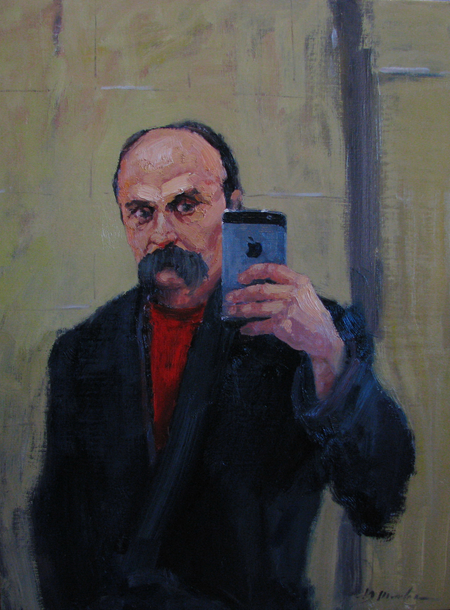On the eve of Shevchenko Day, March 9, media reported about a fresh and creative idea to mark the great poet’s 203rd birth anniversary. Everyone who can recite even a short poem from Kobzar by heart will receive a free ride with the metro in Kyiv as a bonus.
One could simply praise the initiators of the action for creativity. But I get a clear impression that the event is much more serious than it might look at first sight. It is a very significant social problem: the precise and concrete knowledge of the poet’s works against the backdrop of total formal worshipping of Shevchenko (yet frankly speaking, we must say that it does not mean that he is read!). It would be an overstatement to an extent (but not too much of it) to say that it would be better if those gentlemen, who so beautifully and solemnly lay flowers at the foot of numerous Shevchenko monuments across Ukraine, sacrificed a bit of their precious time to peruse Kobzar, at least read it 10 to 15 minutes a day. Especially Shevchenko’s poems dated 1844 to 1861, from his Dream to his very last works. Maybe, then Shevchenko’s image, his boundless love, his furious righteous wrath, his genuine faith in man’s predestination (not to “seize the whole world and take it with him to the grave” but to “live with his heart and love people”), his visionary understanding (“There is no other such Ukraine, no other Dnieper on the plain”), his wonderful words (“in our paradise on earth there is nothing better than the young mother with the baby in her arms,” the words said not by a boy but by a wise prophet, the words of the man who knew what it meant to become an orphan at 11) would dispel that ill-smelling spiritual smog that stifles our society. And maybe then the leaders would learn to feel, even if a little, people’s ubiquitous pain, and remembered Shevchenko’s stern words: “You might fool yourselves or the others, but don’t you fool God!” Although I am rather skeptical. Too little, too late.

Painting by Yurii SHAPOVAL
As far as Shevchenko Day goes (and the initiative mentioned at the beginning of the article), the facts are as follows. The flash mob was held at three metro stations in the capital: Taras Shevchenko, Kontraktova Ploshcha, and Maidan Nezalezhnosti; 147 passengers were easily able to recite poems by heart. Not bad, on condition this is just the beginning.
The healing of our society, which such initiatives enable, is going, even though slow.







